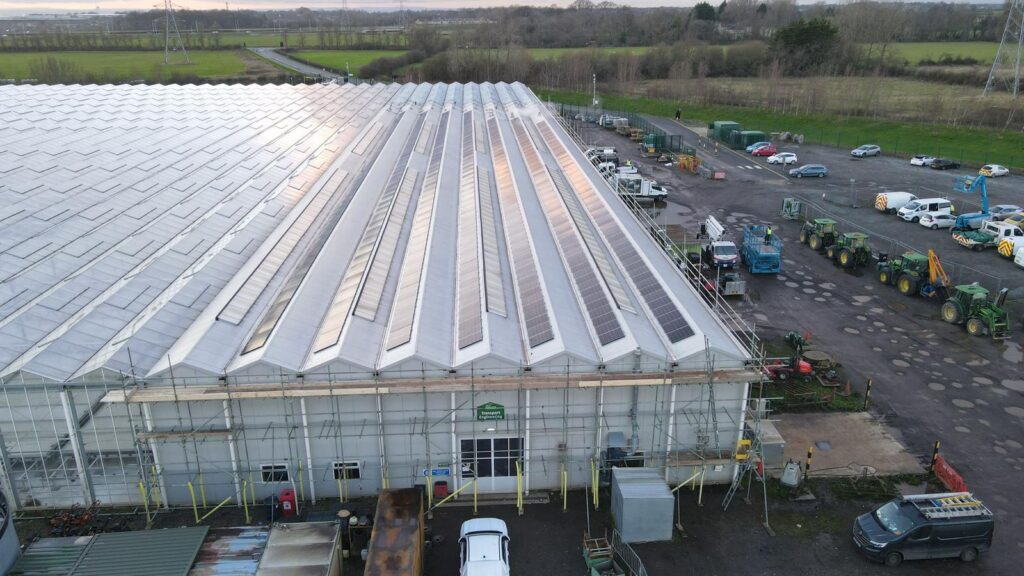UK Space Agency awards funding to ten new projects that will use Earth observation tools, satellite tracking and population data, supported by AI, to mitigate environmental risks.
The ten projects will share £530,000 – with up to £55,000 each – to develop the most up-to-date views of environmental contexts with available data. That includes methane and nitrous oxide emissions, watercourse resilience, biodiversity changes and the infrastructure of decarbonising technologies.
Photo by Nik Ramzi Nik HassanThe aim is to produce forecasts and models that can be used by a wide range of sectors to better understand and mitigate risks. Such sectors include agriculture, energy, finance and insurance. Businesses, governments and others will also be better able to identify opportunities for green financing that could support sustainable business growth.
In principle, this isn’t a new idea. We’ve long known that venturing out into space can reveal more to us about the Earth. By the time the first people walked on the Moon, astronaut and satellite images of Earth’s surface were already being scrutinised to help find new mineral deposits and oil fields, and to help manage agriculture, weather forecasts and road planning. (You can see a report about this on the BBC’s Panorama programme from 21 July 1969).
But now space-based observation is being used in efforts to preserve rather than exploit our planet’s resources.
George Freeman MP, Minister of State at the Department for Science, Innovation and Technology, says: ‘The great challenges of our time need bold solutions and from tackling water pollution to carbon emissions and biodiversity threats, the unique perspective that space provides can play a major role in securing the health of our planet and people.
‘By backing UK innovators to make the most of modern technology including satellite data, AI, and Earth observation, we are also supporting businesses up and down our country to grow our economy while driving forward our ambition to make the UK a major player in space.’
Dr Paul Bate, Chief Executive of the UK Space Agency, adds: ‘The UK has a long history of expertise and innovation in Earth observation, developing satellites to collect increasingly detailed data and using that information to build services that help protect our planet.
‘This targeted funding for early-stage innovations is all about supporting fresh ideas and accelerating the rollout of powerful new tools that have the potential to bring benefits to a wide range of users both within and beyond the space sector.’
The ten projects are:
- Agreed Earth Ltd, Bolton
Earth observation and machine learning-based solution that will remotely model and monitor emissions of nitrous oxide – a significant greenhouse gas – from farmland, giving farmers insights into optimising nitrogen use. - Agtelligence, London
Development of ‘FarmScore’ platform for monitoring farmland using Earth observation data, ‘ground truthing’ – that is, known or directly observable information – and a weighted scoring model, the aim being to both measure critical environmental indicators and unlock green financing opportunities. - Capterio, London
Satellite-enabled tool to track and reduce gas flaring and methane emissions from global oil and gas supply chains. - EOLAS Insight Ltd, Glasgow
Automated mapping and reporting of watercourse climate resilience to better understand the effects of global temperatures on local watercourses as well as to assess mitigation strategies such as riverside woodland schemes. - Frontierra, London
Cloud-based service to enable corporations and financial institutions to rapidly and inexpensively assess their climate impact, with a focus on biodiversity and nature-related risks, dependencies and opportunities. - GeoSmart Information Ltd, Shrewsbury
Highly accessible automated system for forecasting groundwater levels using Earth observation tools, offering improved coverage of flood and drought management. - Map Impact Ltd, Bristol
Freshwater management using multiple data sources to provide an up-to-date picture of climate change and pollution impacts, helping communities to forecast future events and outbreaks, and mitigate risks to both biodiversity and human health. - Omanos Analytics, Glasgow
A service to improve resilience planning and deliver social context data on the impact of climate change by integrating community narratives based on data such as land use and traditional livelihoods. - Sparkgeo UK, Edinburgh
Automated monitoring of methane – one of the most potent greenhouse gases – across users’ areas of interest, with alerts when they are above acceptable levels. - Stellarsat Ltd, Bristol
Framework using data and AI tools to proactively address the exposure of critical energy infrastructure assets such as EV charging stations and solar home systems to physical risks induced by climate change.
The new funding follows £85,000 awarded earlier this year to nine UK organisations – including some of the above projects at earlier stages of their development.
In related news:
£20m from UK Space Agency for drones and other tech to connect remote areas

















Leave a Reply